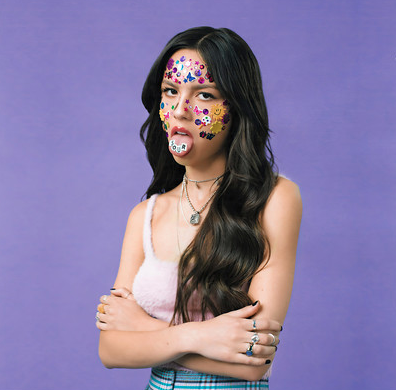Following in the footsteps of fashion, music is now in its 2000s era, making use of prominent songs from the early to mid ‘00s in modern music production. This process is known as sampling — taking an existing song and incorporating it into a new record. “The sample can be anything that you’ve ‘sampled’ from another track; a rhythm, a melody, a beat, vocals or speech, which you then manipulate, edit, chop up or loop to fit creatively within your work,” says the Abbey Road Institute. Sampling is not a new concept, and it has been a particularly popular practice employed by hip hop production in the 1980s. However, it’s becoming more and more apparent that there is a lot of power and reward in utilizing the production of previously successful songs.
While most people would agree that 2000s fashion had more downs than it did ups, there’s an understood notion that music in the 2000s was fantastic. Music listeners yearn for an element of nostalgia that provides the best of ‘80s synth, ‘90s grunge and hip hop, and 2000s pop/punk. Most recently in the 2010s, we passed through an era of hugely electronic music, and it seems that sampling old music could become the next big trend.
Chloe Bailey, ‘Treat Me’
‘Treat Me’ is the second solo single from Chloe Bailey of the R&B musical sister duo Chloe X Halle. This comes after Chloe’s debut single, ‘Have Mercy,’ released in September of 2021, on which she also samples ‘Off The Chain’ (2021) by TT The Artist & UNIIQU3. For ‘Treat Me,’ Chloe samples the chorus of ‘Ms. New Booty’ (2006) by Bubba Sparxxx. Both samples speak to a similar message of Chloe not only embracing, but celebrating curves and body.
Saucy Santana, ‘Booty’
‘Booty’ is an upcoming and unreleased song from Saucy Santana. The singer recently blew up in the past few months on TikTok for his viral song ‘Material Girl,’ which was released two years ago. Since garnering fame, Santana has secured a performance at Rolling Loud, attended the LaQuan Smith fashion show in the front row, and he has even been teased as an upcoming collaborator with Lil Nas X. Days ago, Santana previewed a snippet from an unreleased song with an instantly recognizable track. Perhaps Beyoncé’s most famous song, ‘Crazy In Love’ (2003) was a collaboration between Beyoncé and Jay-Z and many believe that Santana’s use of the famed song is an official endorsement from Beyoncé herself.
Jack Harlow, ‘First Class’
Jack Harlow came onto the music scene most notably in his joint collaboration on Lil Nas X’s ‘INDUSTRY BABY.’ His lead single, ‘First Class,’ for his debut album, ‘Come Home the Kids Miss You,’ was a sample of Fergie’s intro lyrics for ‘Glamorous’ from her debut solo studio album ‘The Dutchess’ (2006). As soon as the promotion for it came out on TikTok, people went crazy for it. This reflected in the sales, as Fergie’s sample helped launch Jack Harlow to no. 1 debut on the Hot 100.
Charli XCX, ‘Beg For You’
For her most mainstream pop album yet, famed hyperpop queer icon Charli XCX sampled ‘Cry For You,’ (2005) by September. ‘Beg For You’ is a collaboration between Charli and Rina Sawayama for Charli’s newest album ‘Crash.’ ‘Cry For You’ peaked at 29 whereas the ‘Crash’ collab has a current peak of 24 on the charts.
Olivia Rodrigo, ‘good 4 u’
In probably one of the most notable examples of a problematic musical reference, we have Olivia Rodrigo’s smash no. 1 hit ‘good 4 u’ off of her debut album ‘Sour.’ As soon as the single was released, the song was not able to escape comparisons to Paramore’s hit song ‘Misery Business’ (2007). The songs became so intertwined that Rodrigo retroactively added the members of the pop-punk band as co-writers on her record after being sued for plagiarism. This may be a better example of taking inspiration rather than directly sampling, but in a court of law it held up as a sample of the instrumentation beat. This just further illustrates how prominent the influence of 2000s music has on current artists — they may end up inadvertently with a similar sound without intending to do so.
There has been an ongoing debate about whether or not it’s possible to create truly ‘new’ music. Some argue that music is only ever just a reimagination of past music. In an interview with the LA Times, Adam Levine, lead singer of Maroon 5, delves into the nuance of artists taking inspiration from past music versus making copies.
The benefit of sampling is that it’s an instantly recognizable sound to most people, so the artist generally knows the reaction that the new song is going to elicit. Is sampling the new get-attention-quick gimmick … similar to how the best marketing scheme has been to create a viral TikTok song/dance? Is sampling laziness from people in the music industry? It seems that regardless of the answers to these questions, sampling is sure to yield a successful record, and as more artists catch on to this trend, it is likely that we’ll be seeing much more of it.

